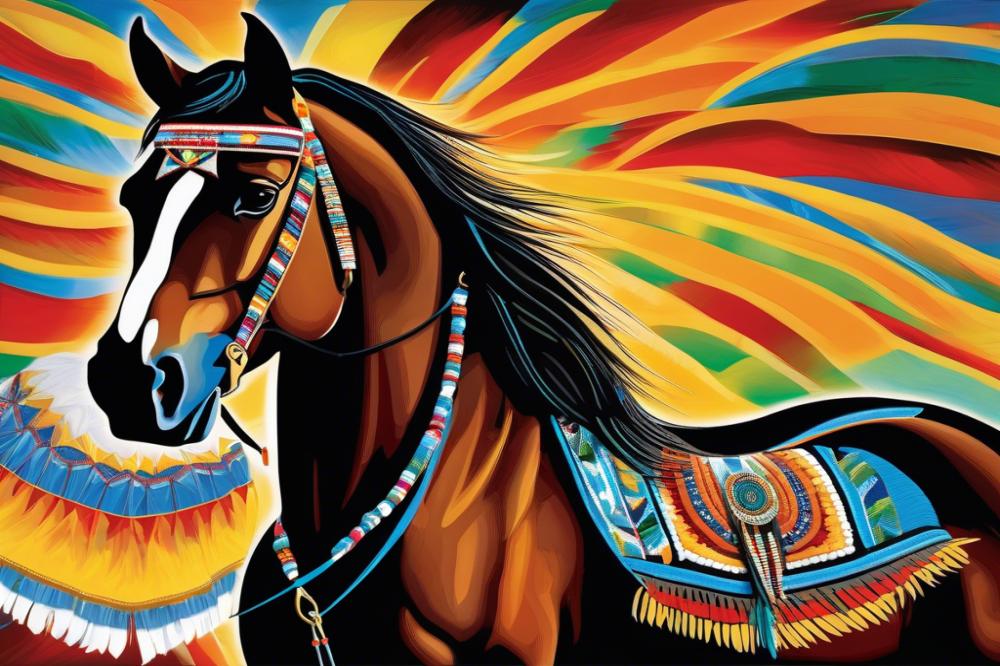The Importance of Horses in the spiritual practices of the Lakota
Throughout history, many cultures have recognized the vital role of horses. In various communities, these majestic animals symbolize freedom, strength, and connection to the spirit world. In Native American traditions, this bond often goes deeper. Horses are more than just animals; they are partners in life and spiritual journeys.
The Lakota people, a branch of the Sioux nation, hold unique spiritual practices that reflect their values and beliefs. Their relationship with nature is profound. For them, every element of the natural world carries significance. This includes a special bond with horses. These animals have been integral to their culture for generations. They are not merely seen as tools but as sacred beings that facilitate communication with the divine.
This article will explore the symbolic and practical importance of Lakota horses in their spiritual practices. Understanding this relationship sheds light on the Lakota’s connection to their heritage and traditions. Horses, in their eyes, embody a presence beyond the physical. They are essential for ceremonies, medicine, and even daily life. Through examining their roles, we can appreciate how these animals influence the Lakota worldview and spiritual health.
Lakota horses: A Spiritual Connection
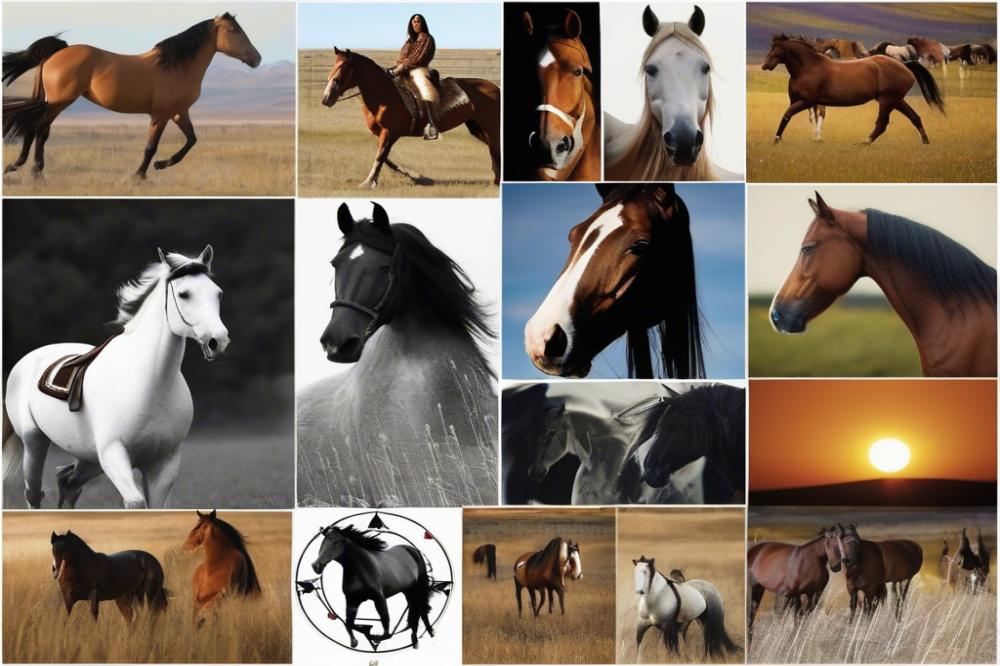
Horses play a vital role in Lakota spirituality. They are deeply intertwined with traditions and beliefs. For the Lakota people, these animals are much more than modes of transportation. They represent a bridge between the physical world and the spiritual realm.
The role of horses in Lakota spirituality
In meditation and ceremonies, horses are often present. They symbolize strength and freedom, qualities that resonate deeply within Lakota teachings. These creatures are believed to carry prayers to the Great Spirit. Many ceremonies involve the presence of horses to bless the event and elevate its significance.
Symbolism of horses in Lakota culture
Each horse holds its own unique story. Symbols like the horse’s mane or its color can have different meanings. A black horse might signify power, while a white one could represent peace. Riders often develop bonds with their horses, seeing them as partners in both life and spirituality. These relationships embody respect and understanding of the natural world.
Horses as sacred animals and their connection to nature
Connection to nature is fundamental in Lakota beliefs. Horses are seen as sacred beings, gifted by the Creator. They remind people of their responsibility to care for the land and all its creatures. Through horses, the Lakota find an expression of harmony with the environment. Riding a horse becomes a spiritual journey, allowing individuals to connect with both their heritage and the earth.
Horses in Lakota Traditions and Rituals
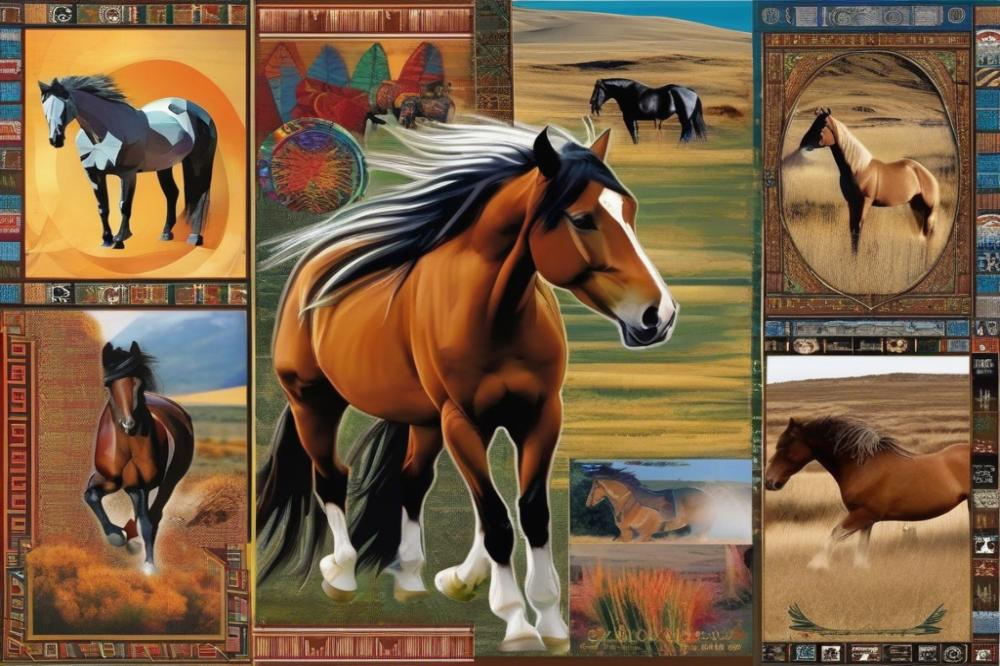
Traditional ceremonies involving horses
Horses play a significant role in Lakota ceremonies. Many traditional practices incorporate these animals. During the Sun Dance, for example, horses serve as sacred companions. They are often adorned with special blankets and decorations. The connection between people and horses deepens during these rituals. Participants may offer prayers and songs, honoring both the horses and their spirit.
The significance of horse races and gatherings
Horse racing events are more than just competitions. These gatherings foster community and bring people together. Riders often display their skills, showcasing the bond they have with their horses. Beyond entertainment, these races have deep cultural roots. They represent agility, strength, and the spirit of the Lakota people. Events like these allow for the sharing of traditions and stories among families.
Horses as symbols of strength and freedom in Lakota storytelling
In Lakota storytelling, horses symbolize freedom and resilience. Tales passed down through generations often feature these majestic animals. They embody the strength of the land and the spirit of the people. Stories tell of heroic deeds accomplished with the help of horses. Such narratives inspire listeners, reminding them of their heritage. People feel a connection to both the horse and the values it represents.
Cultural Practices Surrounding Lakota Horses
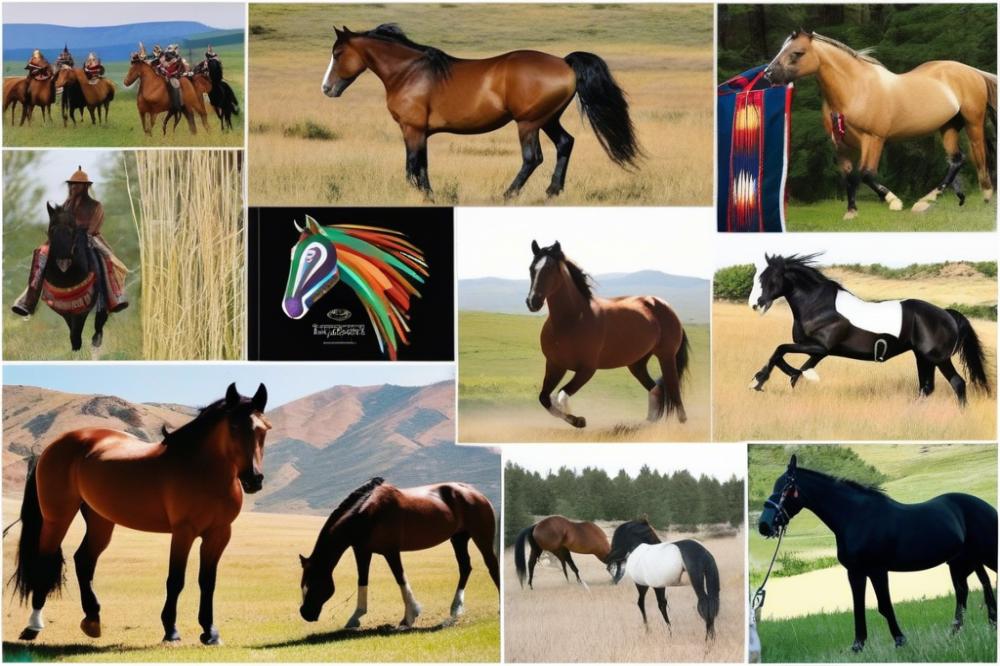
Training and Caring for Horses in Lakota Culture
Horses play a vital role in the daily life of the Lakota. Training these animals starts at a young age. Children learn to handle horses, gaining skills that last a lifetime. Caring for them is a communal effort. Families work together to feed, groom, and maintain their health. This bond creates respect between the horse and its owner.
The training process focuses not only on riding. It also includes understanding the horse’s behavior and signals. Many believe that patience is key. Through gentle techniques, horses learn to respond to their riders. The connection deepens as trust builds over time.
Relationships with these animals extend beyond practical use. Horses become part of the family. They are integral to many ceremonies and events. The Lakota see them as allies in both life and spirituality.
Horse Ownership and Its Spiritual Implications
Owning a horse carries significant meaning within Lakota spirituality. It reflects a person’s connection to the earth and its creatures. Many believe that horses have spirits of their own. These spirits can guide and protect the owner through life’s challenges.
An important ritual involves honoring the horse during special events. Offerings may be made to acknowledge the horse’s spirit. This act signifies deep respect and gratitude. Such practices enhance the spiritual bond between the rider and horse.
During vision quests, a horse often accompanies individuals seeking clarity. This partnership symbolizes strength and courage. The presence of a horse can lead to profound experiences during these spiritual journeys.
The Horse as a Status Symbol Among the Lakota
In Lakota society, owning horses signifies status. The number of horses someone has often reflects their wealth and influence. This aspect creates a unique social hierarchy among tribes. Leaders and respected elders usually have the finest horses. Their animals are often well-trained and cared for.
Competitions during gatherings may showcase the riders’ skills. Displays of horsemanship can attract attention and admiration. Winning races or contests elevates a rider’s status within the community.
In addition to material wealth, horses are linked to personal achievements. Acquiring a horse can mark significant life events. This includes rites of passage or accomplishments in battle. Each horse carries a story, adding value to its ownership.
Culturally, the horse remains central to the identity of the Lakota people. They embody strength, beauty, and the spirit of the land. Understanding the role of horses clarifies their importance in both the past and present.
The Role of Horses in Lakota Identity
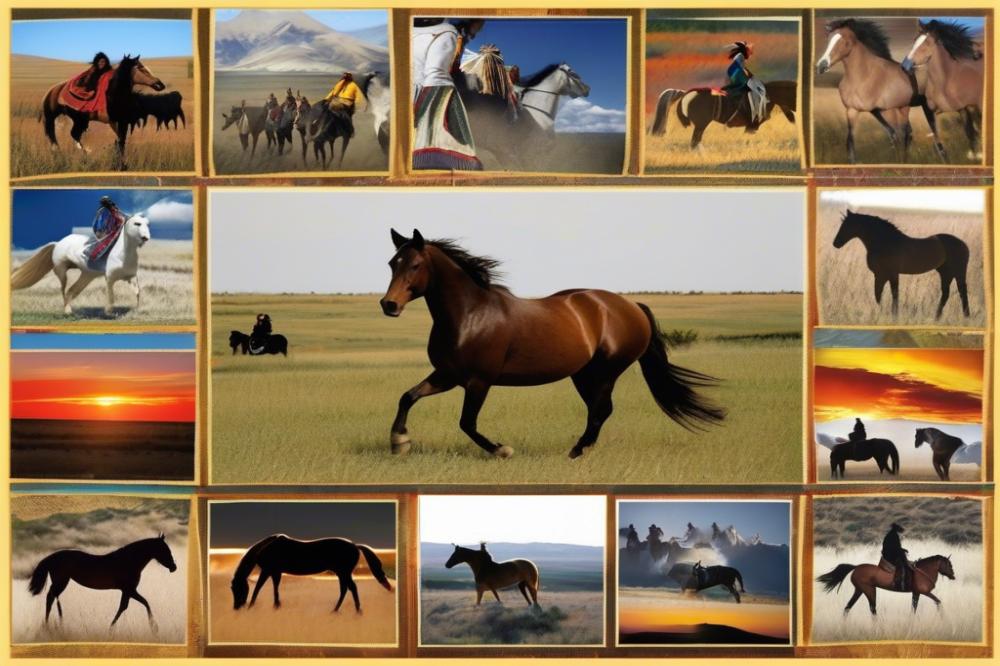
Connection between horses and Lakota identity
Horses play a vital role in shaping the identity of the Lakota people. For centuries, these animals have been more than just means of transportation. They symbolize strength, freedom, and a deep connection to the land. Many stories and teachings revolve around horses in Lakota culture. Celebrated in songs and ceremonies, they are often seen as spiritual beings. This relationship goes beyond physical needs; it forms a bond that is emotional and spiritual. Horses reflect the values of the community, like bravery and resilience.
Horses in contemporary Lakota life and spirituality
In modern life, the significance of horses remains profound. Many Lakota still participate in traditional horseback events, showcasing their skills and heritage. These activities reinforce community bonds and revitalize cultural traditions. Spiritual practices often involve horses, especially during rituals. Horses are seen as messengers to the spirit world. People believe they carry prayers and intentions. Celebrations and ceremonies that honor these animals help to bridge past and present. Through these gatherings, the Lakota pass down stories and teachings to younger generations.
Preservation of horse-related traditions in modern times
Efforts are ongoing to preserve horse-related traditions within the Lakota community. Some families train horses using techniques passed down through generations. Younger members are encouraged to learn the history behind these animals. This learning creates a deeper understanding of their cultural roots. Documenting stories and teachings about horses is also crucial. Art, dance, and music often feature equine themes, keeping the connection alive. By engaging with these traditions, the Lakota ensure their unique culture continues to thrive. This ongoing relationship with horses highlights their importance as symbols of cultural identity.
Final Thoughts on the Role of Horses in Lakota Spirituality
Horses play an essential role in the spiritual practices of the Lakota. They are much more than just animals; they are sacred beings that connect the people to their ancestors and the natural world. In ceremonies, the presence of horses is often felt as a vessel of power and strength. Their movements and beauty inspire songs, stories, and rituals that have been passed down through generations.
This connection to horses reflects the ongoing cultural significance they have in the lives of the Lakota. These creatures symbolize freedom, endurance, and the spirit of the land. Today, many Lakota continue to honor this relationship through various ceremonies and gatherings. It is a way to remember the past while also connecting with the present. The deep respect for horses is a sign of their enduring relationship with nature and spirituality.
The legacy of horses within Native American spirituality remains strong. They are recognized as guides and partners in life’s journey. Horses help shape the identity of the Lakota people. As communities work to preserve their cultural heritage, the role of horses within spiritual practices will continue to be celebrated. This bond not only enriches individual lives but also strengthens the communal fabric of Lakota society.

